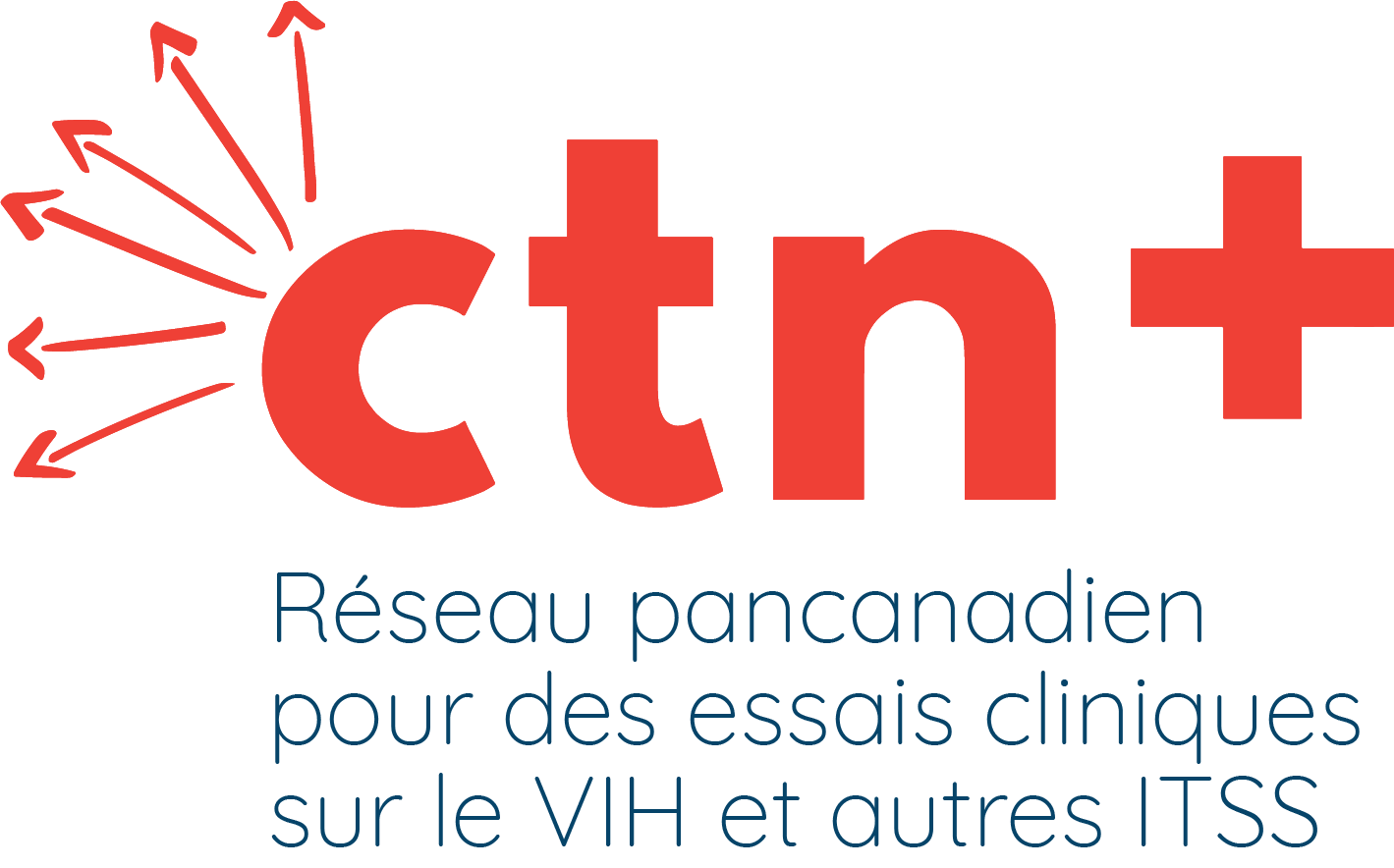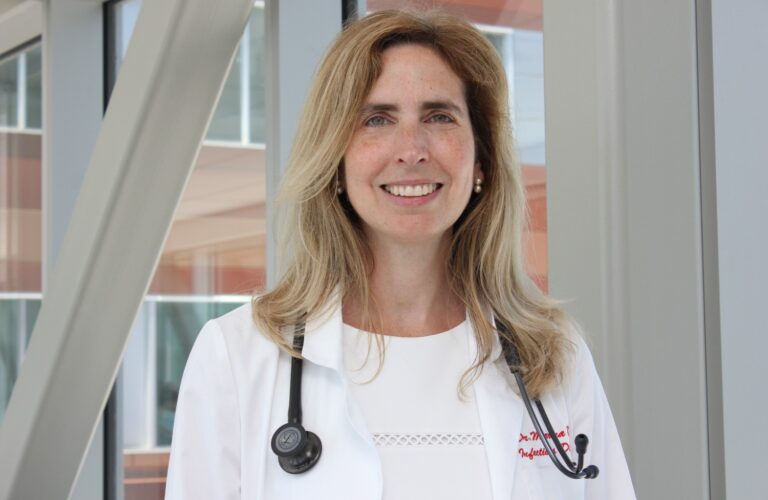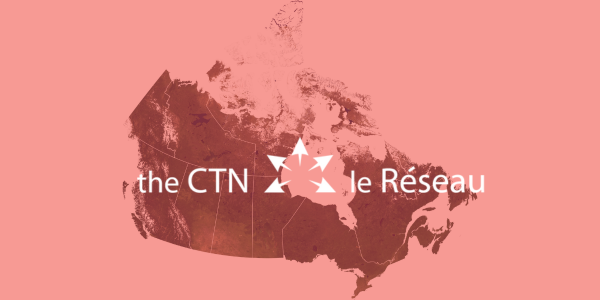Read the full text of Dr. Klein’s speech below.
Tribute to Mark Wainberg
It’s with great sadness that I stand with you today to pay tribute to Mark Wainberg. A world class scientist, a tireless leader in the fight against HIV/AIDS, a fantastic mentor, a colleague and a very dear friend.
Mark’s accomplishments are almost too numerous to list. When preparing for this memorial I looked back through old correspondence and letters I’d written on his behalf over the years nominating him for well-deserved awards. Without hyperbole these went on for pages, and pages and pages…..
I also read and have been inspired by many heartfelt and excellent tributes to Mark published by his colleagues and former students shortly after his untimely death on April 11 in Bal Harbour Florida where he was vacationing with his family.
I hope, in this brief memorial, to paint for you a picture of this truly remarkable man drawing on my personal knowledge of him and stories from his many friends and colleagues.
Mark Wainberg was Director of the McGill AIDS Centre, Professor of Medicine and Microbiology and Immunology at McGill University and Head of the Laboratory for Research on AIDS at the Lady Davis Institute for Medical Research, Jewish General Hospital, Montreal. He served as President of the International AIDS Society from 1998-2000.
SCIENTIST
Mark began in the field of HIV as a basic scientist but he grew to be so much more—one of those exceptional individuals who was able move science out of lab, use it effectively to advocate for change and influence policy.
After spending a sabbatical as a visiting scientist in Robert Gallo’s laboratory at the National Institutes of Health from 1980 to 1981, Mark established the first HIV laboratory in Canada. In 1989, his team was involved in the identification of 3TC, one of the most widely used antiretrovirals to this day. His work also contributed to the field of HIV drug resistance and helped to identify many of the mutations responsible such as the M184V mutation and its contribution to reducing viral fitness, alternative drug resistance pathways in non-subtype B HIV, and most recently, the slow emergence and high fitness cost of Dolutegravir resistance.
Throughout his career, he remained a productive and prolific scientist – author on an astounding 580 peer reviewed publications and 309 book chapters, reviews, editorials and commentaries.
Mark Wainberg is a name could be found on the editorial boards of nearly every HIV or virology journal at some point in their publication history. Together with Dr. Kuan-Teh Jeang he started the journal, Retrovirology. He launched the Journal of the International AIDS Society shortly after his term as President of IAS and remained its Editor-in-chief until his passing. During his tenure, JIAS has emerged as a preeminent journal in the field with an impact factor now surpassing AIDS and JAIDS and closing in on CID.
COLLABORATOR
Mark was a generous collaborator. His passing leaves an enormous void in the Canadian and global research landscape.
Indeed, he was instrumental in founding or leading all of our major research societies in Canada over the years. He was involved the Canadian HIV Trials Network from the very beginning–the first chair of its Scientific Review Committee and then chair of the Steering Committee from 1998-2008.
He was President of the Canadian Association for HIV Research and served as Co-Chair of CANFAR’s Scientific Advisory Committee for more than 25 years.
Pendant des années Mark était co-directeur du réseau SIDA/MI des fonds des recherches du Québec–Santé. Il a initié « Les Journées Québécoises », une activité francophone annuelle d’échange de connaissances entre chercheurs Français et Québécois impliqués dans la lutte contre le VIH.
Mark à toujours faire preuve d’une remarquable ouverture envers ses collègues francophones. A haute voix il a insisté que la langue ne devrait pas être une barrière dans la collaboration scientifique.
Il a nourri un rapport a long dure avec l’ANRS et AFRAVIH. En reconnaissance de ces efforts, il était nommé Chevalier de la Légion d’Honneur en 2008.
He was he was also made an Officer of the Order of Canada, our country’s highest civilian award. In 2016, he was inducted into the Canadian Medical Hall of Fame for having revolutionized our understanding of HIV “at the medical, epidemiological, and political levels.”
From all these accomplishments, you would think that he never slept… Maybe he didn’t but there is no question, he always was energetically ready to take on the next challenge.
It’s the sad irony of an untimely death that you come to realize how little you actually know someone in all their facets, especially someone who embraced life as Mark did.
When I attended his funeral at the Tifereth Beth David Jerusalem Congregation, the synagogue he attended for many years in Montreal, I was struck by the amazing diversity in the hundreds who gathered to mourn. In addition to his wife, his two sons and their wives and his young grandchildren, the seats were filled with such a vast array of people. Longstanding colleagues from HIV research, community doctors, countless young students he was still training, community members who came from across the country to pay their respects, representatives of the pharmaceutical industry, The Dean of Medicine, the current director of Canadian Institutes of Health Research and many members of Jewish community that he was so committed to and a part of. A veritable tapestry of the sometimes never intersecting worlds that Mark inhabited. All united it their heartfelt appreciation for this remarkable human being. For Mark was a uniter. A supporter and advocate of all people, from all walks of life.
I heard for the first time how he had recently donated a 150-year-old Torah scroll, which was originally written by hand on parchment in Baghdad to Jerusalem’s Mayor Nir Barkat for use in an Ethiopian synagogue. Mark said he was moved to make the donation after hearing about the death of 16-year-old Shira Banki, a high school student who was stabbed to death in July 2015 during the city’s annual Gay Pride Parade. She was attending the parade to show solidarity with her LGBT friends.
MENTOR
When I first returned to Montreal after my fellowship in Infectious diseases….And this will give away how long ago that was, I contacted Mark, not ever having worked with him, a naïve and very junior investigator with a bit of an odd ball idea to test drug combinations in vitro that might be used simultaneously to treat HIV and HCV – ddI, ribavirin and interferon of all things – and he was so incredibly generous with his time and lab and his advice. We got a small grant together and he helped me to carry out the studies. There was no hierarchy with Mark. If you had a good scientific question he didn’t care who you were. He treated me as an equal from the start and we remained collaborators and friends ever since even when I realized that my place in research was probably best not in lab.
Indeed, he had this incredible ability, despite all the things he was doing, to connect with people on their level even for brief periods of time and give them all his undivided attention.
During his life, Mark trained hundreds of students who came to his lab from diverse backgrounds and who are now scattered across the globe doing great work. Many of whom continued to have life-long relationships with him scientifically and personally –who always knew they could count on calling him when they needed a bit of career advice or a dose of realism. Mark didn’t sugar coat things.
COMMUNITY ADVOCATE
As he was with his colleagues and students, he was ever more so with people living with HIV becoming their tireless advocate. It’s in this role that he truly excelled.
While President of the International AIDS Society, he was instrumental in bringing the International AIDS Conference to Durban in 2000. The conference was opened by South African President Thabo Mbeki, who denied that HIV caused AIDS. It showcased the lack of access to life-saving antiretroviral treatment for millions of Africans. Thousands of researchers signed The Durban Declaration, arguing that the scientific evidence that AIDS is caused by HIV was so rigorous and so strong as to be undeniable.
When the South African government refused to make nevirapine available to pregnant women living with HIV to prevent mother-to-child transmission, the Treatment Action Campaign (TAC) took the government to court. The government then filed a 1000-page affidavit that claimed that nevirapine resistance would lead to a public health catastrophe in South Africa. Urgently needing a world expert in virology, TAC reached out to Mark Wainberg.
Although Mark was highly critical of the use of NNRTIs in first line treatment due to fear about generating widespread resistance, he was passionate about getting needed treatments to those for whom evidence showed they could have benefit. Within five days, he wrote a detailed affidavit arguing that nevirapine use should be encouraged and that its effectiveness should take precedence over considerations of drug resistance. Consequently, the Courts ordered the government to roll out nevirapine in July 2002.
These actions ultimately lead to a sea change in policy that has resulted in millions of Africans receiving life-saving antiretrovirals and thousands of children being born free of HIV – Arguably these are Marks greatest contributions.
He continued to be involved in Africa over his career for example, as project leader of TanZamBo a capacity building network for HIV/AIDS prevention research training young investigators in Tanzania, Zambia, and Botswana.
POLITICIAN
Mark became a consummate politician. Never failing to use an opportune moment to drive home a message.
At the International AIDS society conference in Toronto 2006, speaking as local co-chair, he called out then Prime minister Stephen Harper, another denier of science, for not attending.
Though at this same meeting, he was clearly star-struck by President Bill Clinton who DID attend. I think Mark probably could hold his own with anyone.
THE LIGHTER SIDE
No tribute to Mark could be complete without talking about his other lesser known achievements.
Mark was Air Canada’s highest frequent flier, with over 3,000,000 miles.
A Canadian colleague, Gary Rubin, said when reminiscing about him: “Travelling with Mark was always an experience. You would never get bumped from a flight, but you would always be the last to board because Mark always knew which Airport Lounge had the best Scotch, and many times the lounges were in other terminals.”
That impish grin would pop up whenever you least expected. Last Fall we were leaving a meeting with Dean of Medicine, and I noticed his smile looked a little askew. Not the least embarrassed, he removed his front tooth which was being held in place by chewing gum. During, the 2016 HIV Glasgow meeting a few days earlier, he had bitten into an apple and lost a crown. As he wandered through streets of Glasgow looking for an open dental clinic, a passerby asked if he needed assistance. Mark was delighted to find his good Samaritan turned out to be a dentist, who opened his office and did a temporary fix of his tooth at no charge. Only Mark could find a dentist willing to work on a Sunday in Glasgow!
In 2001, as President of the Canadian Association for HIV Research, Ken Rosenthal initiated the Mark Wainberg Lecture “to honour the veteran leader in the fight against HIV/AIDS, the voice fighting AIDS publicly since the earliest days.”
Every year since, Mark would bestow the award always with a sense of humour. In 2015, when awarding Bill Cameron the lecture, he shed his usual blue blazer and appeared dressed entirely in black and wearing Birkenstocks – Bill’s signature uniform as you will recognize if you know him. And then he proceeded to give him as a gift, two new black shirts telling him he thought it was time to update his wardrobe.
This past April, during his last public appearance, he joked as he did every year, that he was giving the “Mark Wainberg Memorial Lecture”. Very much alive he called out to various colleagues in the audience looking for those who were older them him of which there were still a few…. Never seeming to age, he joked about the highest rated doctor in the New York being a hair transplant surgeon (pictured here, clearly reserving his work for his patients). He then went on to do what he loved – to promote and recognize a colleague for their contributions—this time, Dr. Julie Bruneau.
And that was the last time I saw Mark. For a few days later he flew to Florida to spend time with his family for Passover and drowned in the ocean in which he loved to swim.
LEGACY
Mark leaves a tremendous legacy. His children and grandchildren, countless successful trainees, millions whose lives are better because of his work and advocacy.
Perhaps for me his greatest legacy is in how he inspires me to not be complacent. To speak out against injustice, to use the power of science to influence those who seek to deny, to give voice to those who have none and to keep on speaking out until things change.
Let’s all pledge to continue to do his great work.






